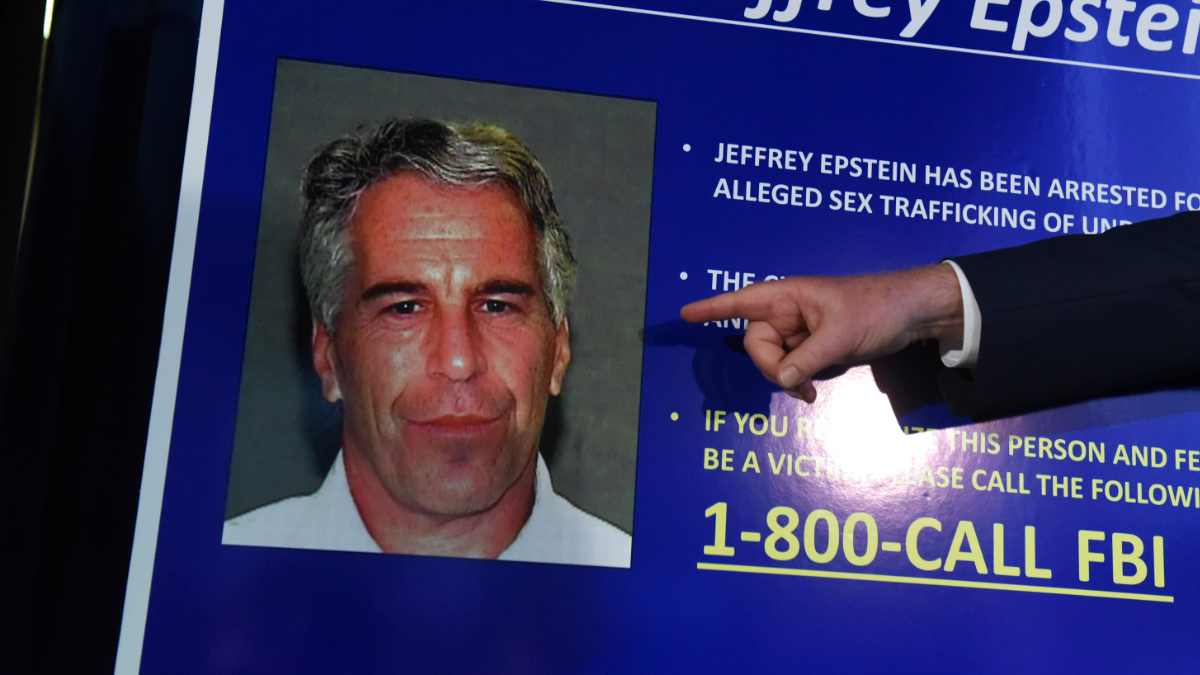When I played Ether One, developer White Paper Games’ debut mystery-puzzle-walking-simulator experience, it was just a free game on PlayStation Plus that I downloaded on a whim. As I made my way through the world, I was struck by how minimal everything was, yet it still managed to be affecting. I had no clue what I was doing, no idea what my purpose was in this world, but I kept moving forward all the same, compelled by the clever puzzles and the underlying sense that the game would continue to exist regardless if the player was there.
I never finished Ether One, but I am forever thankful I chose to play it. Since then, White Paper Games has been a permanent fixture on my radar. When I looked at the slate of games set to release this month, The Occupation was high on my list. Again, I had a small understanding of what the game was about, but because of my experience with Ether One, I took that as a good thing. I couldn’t wait to dive in, to see what new mystery they would lay before me.
Quite simply — though it has its flaws (some of which are infuriating) — The Occupation is one of my favorite games this year. It thrust me into another fascinating mystery, only this time around, it felt far more pertinent to the real world. It’s a game that embraces immersive sim mechanics, denying the recent cries from the industry that the genre died with 2017’s Prey. Like Ether One, their second title exists without regard or input from the player. Though it fumbles its ending, when the credits finally rolled by, I was, yet again, touched by the world White Paper Games created.

Let’s back up a bit. The Occupation takes place in 1987 London. It’s a time of great political and social tension, as the government is on the brink of passing an unabashedly racist and xenophobic bill, The Union Act. Before the game begins, a bombing kills 23 people, provoking Britain to act out of fear. The Union Act, if passed, will effectively deport any illegal immigrant living within the United Kingdom. The bill is a knee jerk reaction, stemming from decades of unchecked, institutional racism, and the British government is using the terrorist attack as fuel to stoke its citizens’ inherent prejudices. Sound familiar?
You play as Harvey Miller, a journalist investigating the bombing and trying to uncover any bad actors. When Harvey arrives at the government building in which the attack took place, he has roughly four hours to question any witnesses or individuals working in the building that night. The game progresses in real-time, regardless of what you choose to do or objectives you complete, so it’s up to the player to determine how they want to spend their hours.
Do you want to play the muckraking journalist, sneaking through the vents and sleuthing your way into off-limit areas? Or perhaps you want to take your time admiring all the paintings and audio exhibits, treating your time as a museum-goer? Better yet, maybe you have a tough time breaking the rules, so you patiently allow the minutes to pass by without making an effort to discover any wrongdoing on the night in question. When the time comes to interview the witnesses, since you spent your time happily oblivious, the only options for questions will be softballs, turning your hard-hitting investigative piece into a fluff article.

The Occupation allows unfettered freedom when it comes to player choice. I could approach the game in the ways I listed above, or I could choose something entirely different — the game doesn’t care. I was given various objectives to complete, but I was never told how to accomplish them or where to go. I spent the first two chapters not finishing any of the objectives I was given because I was either getting caught, didn’t have the right clues, or I ran out of time, which means I had to head to one of the interviews. But it didn’t matter — however many objectives you complete in a chapter, time keeps ticking.
Mechanically, The Occupation plays like a cross between a Myst-esque mystery game and an immersive sim. At the start of every chapter, I was told what time it was and how much time I had left until my next interview. I was equipped with a watch (like real life, I obsessively checked it so I wasn’t late to my appointment), a pager, a briefcase — which houses important documents I picked up along the way — and a dossier, which holds all of the objectives, interview questions I unlocked by sneaking around and uncovering vital info, and other clues.
Similar to other immersive sims before it, The Occupation attempts to emulate life through a variety of systems. As I encountered obstacles, I had to use real logic and movement in order to solve them. If I found a cassette tape, I could find a nearby cassette player, insert the cassette, rewind, fast forward, pause, and stop the cassette. Did I say cassette enough? Then, after listening to the tape, I might hear that a specific character logged special documents in a particular filing cabinet. In order to open said cabinet, I have to hold square to grab the handle, move the left analog stick to open it, and then sort through to find the document. After finding the document, I might get an objective to insert it in a fax machine, which has its own set of mechanics and systems. You get the idea. Being able to operate as a real human helped to sell the idea that I was actually Harvey Miller.
Unfortunately, once you start sneaking around, things fall apart a bit.

Since the entirety of The Occupation takes place in a single building, you encounter the same two security guards in every chapter, Steve and Dan. Part of me thinks this is a running gag the developers are keen on reinforcing, as if to say, “Isn’t it funny that Steve and Dan are everywhere?” Although it is funny to see the same two omnipotent guards everywhere I went, they are a little too all-knowing.
Dan is Steve’s boss, so he mostly just sits around and tells Steve what to do. I spent the bulk of my time cursing Steve’s name and running away from him. Whenever I was sneaking around, no matter how quiet I was being, no matter how far away I was from Steve, he would hear me. Worse yet, he can seemingly teleport. Even if I was on the opposite side of the map, if I did something to arouse suspicion, Steve warped to me within seconds.
It was amusing the first few times around as I, yet again, bemoaned something along the lines of “Darn you, Steve!”, but it quickly became annoying. Why on earth would someone like Steve, a person The Occupation goes to great lengths to make look like a dingus, be so good at finding me every single time? It made no sense within the context of the story, and it prevented me from seeing parts of the game it obviously wanted me to see. Steve is the sole reason why I was not able to complete any objectives in the first two chapters. I don’t know how many times I got close to finding something of importance, only to be thwarted by good ol’ Steve, simply because I accidentally nudged a mug. I appreciate a good stealth game as much as the next guy, but the AI in this game is superhuman, which chipped away at my enjoyment.
The Occupation only saves after every chapter, which made my play sessions feel stressed, to say the least. I understand that the story progresses in real-time, so the lack of saving is supposed to raise the immersion, but real life is hectic. As much as I would love to be able to play games all hours of the day, I can’t, and the infrequent saving made me feel stressed, not engaged. Luckily, gaming systems now have “rest modes,” so it wasn’t too much of an issue.

Thankfully, the story is engrossing, making my annoyances feel minor in comparison. The gaming industry is getting older, and as it matures, so do the stories developers tell. Especially in our current political and social climate, it’s nice to see developers play with complicated topics rather than continue to shout, “Y’all want to see all the guns our game has?”The Occupation is not subtle in its storytelling — it has something to say and it’s going to say it, whether the player likes it or not. I couldn’t help but find the candor in its messaging admirable. There are times when I want nothing more than to shut my brain off and play for a few hours, but more and more, I find myself critically evaluating what a given game is trying to say about race, gender, sexuality, or politics. Between the propaganda laced throughout the environments, the radio programs discussing the ethics behind The Union Act, or the characters blatantly spouting racist rhetoric, I was surprised to see that, for the most part, the game handles its politics well.
White Paper Games decided to say more with their voice, and I appreciate it. Toward the end of The Occupation, though, the messaging weirdly warps to a black or white perspective — you, as the player, are either on one side or the other. While that’s a more digestible message then a centrist “can’t we all just get along” mentality, it was an odd shift that undermined the intricate topics it was attempting to explore.
When I started this review, I thought it would be a short one. Now, 1600 words later, I realize that The Occupation touched me more than I thought it did. It’s one of those games I will be recommending to everyone, and showing to those who want to see what the medium can do. It’s not a perfect game, but at least it’s trying to do something more. That is something I will always welcome.
This review is based on the PlayStation 4 version of the game. A copy was provided by Humble Bundle.










Published: Mar 4, 2019 09:00 am